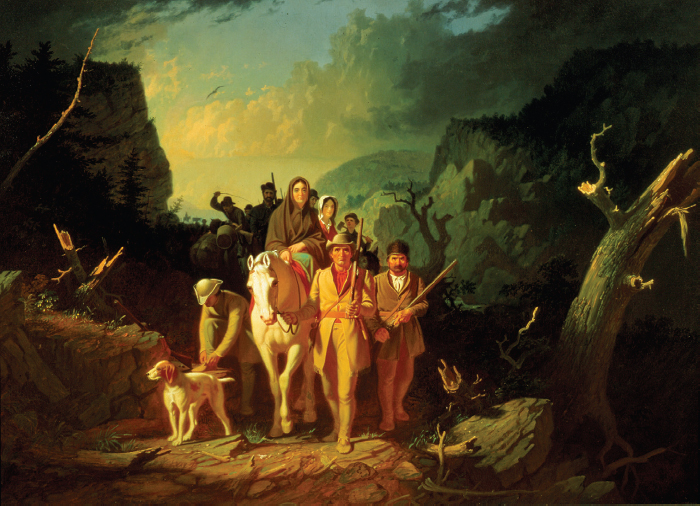America’s History: Printed Page 177
America: A Concise History: Printed Page 158
America’s History: Value Edition: Printed Page 153
Thomas Paine’s Common Sense
As military conflicts escalated, Americans were divided in their opinions of King George III. Many blamed him for supporting oppressive legislation and ordering armed retaliation, but other influential colonists held out the hope that he might mediate their conflict with Parliament. John Dickinson, whose Letters did so much to arouse Patriot resistance in 1768, nevertheless believed that war with Great Britain would be folly. In July 1775, he persuaded Congress to send George III the Olive Branch Petition, which pleaded with the king to negotiate. John Adams, a staunch supporter of independence, was infuriated by Dickinson’s waffling. But Dickinson had many supporters, both inside and outside of Congress. For example, many of Philadelphia’s Quaker and Anglican merchants were neutrals or Loyalists. In response to their passivity, Patriot artisans in the city organized a Mechanics’ Association to protect America’s “just Rights and Privileges.”

With popular sentiment in flux, a single brief pamphlet helped tip the balance. In January 1776, Thomas Paine published Common Sense, a rousing call for independence and a republican form of government. Paine had served as a minor customs official in England until he was fired for joining a protest against low wages. In 1774, Paine migrated to Philadelphia, where he met Benjamin Rush and other Patriots who shared his republican sentiments.
In Common Sense, Paine assaulted the traditional monarchical order in stirring language. “Monarchy and hereditary succession have laid the world in blood and ashes,” Paine proclaimed, leveling a personal attack at George III, “the hard hearted sullen Pharaoh of England.” Mixing insults with biblical quotations, Paine blasted the British system of “mixed government” that balanced power among the three estates of king, lords, and commoners. Paine granted that the system “was noble for the dark and slavish times” of the past, but now it yielded only “monarchical tyranny in the person of the king” and “aristocratical tyranny in the persons of the peers.”
Paine argued for American independence by turning the traditional metaphor of patriarchal authority on its head: “Is it the interest of a man to be a boy all his life?” he asked. Within six months, Common Sense had gone through twenty-five editions and reached hundreds of thousands of people. “There is great talk of independence,” a worried New York Loyalist noted, “the unthinking multitude are mad for it. … A pamphlet called Common Sense has carried off … thousands.” Paine urged Americans to create independent republican states: “A government of our own is our natural right, ’tis time to part.”